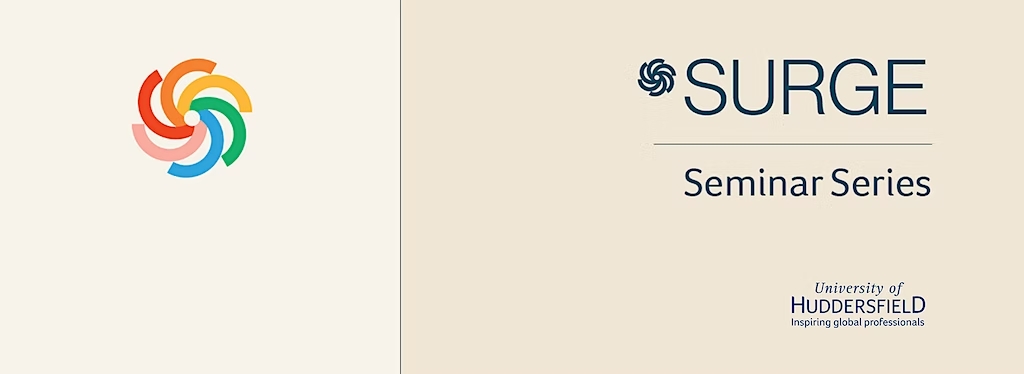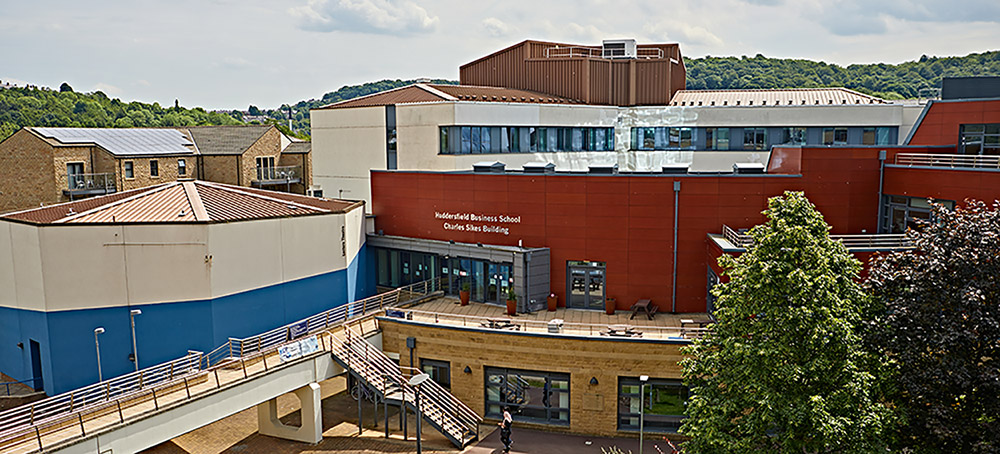Seminar Series Dates
| Date | Contents |
|---|---|
| Wednesday 14th December 12.15-14.15 |
12.15 SURGE Seminar and Workshop Lunch Dr Jannine Williams, Queensland University of Technology Gender equality and the identification and removal of barriers to opportunity is a key priority in Australia. Across states and territories strategies and action plans are in place to improve responsible management by addressing systemic and structural barriers to women’s equality, including opportunities in employment. However, significant gender inequalities remain. It is also recognised that other forms of disadvantage and discrimination intersect with gender inequality. One state recently passed the first Australian legislation requiring public sector organisations to take positive action to address gender inequality which explicitly incorporates addressing intersecting forms of disadvantage. This seminar will share insights from a research project underway with State public sector employees to explore the intersections of gender and disability in women’s experiences of progression and promotion opportunities.
13.15 Part 2: Bid/Proposal Writing Workshop Gemma Bend is working with Jannine Williams on a Top 300 project to submit a successful funding application. They are using the ideas arising from the project presented by Jannine in Part 1, along with previous research completed by Gemma, to develop their proposal. - give an indication of what needs to be done ahead of even beginning to write, including - finding the right funder and call/programme - putting the team together - getting partners/stakeholders/prospective participant groups on board - clarifying the idea and the research design - how long the different parts of the process are likely to take once you start writing - what reviewers will be looking for - how the costings are done - what happens after you are successful! |
| November 8th, 15.15 - 17.15, 2022 |
'Towards circular practices: the case of popular upcycling in St Paulo, Brazil' Filipe Torez, University of St Pualo Popular upcycling revolves around activities in which discarded materials are reclaimed through craftsman techniques as part of traditional culture in the Global South; for example, the transformation of discarded wood from skips to solve emergent problems. Drawing on recent research in St Paulo, Brazil, in this talk Felipe Torez applies three elements of a practice approach (Shove et al., 2012) to explore the social dynamics of upcycling. The results reveal interventions for scaling-up upcycling, which in turn outlines a route towards its professionalization into the circular economy. |
| September 29th, 2022 |
'Becoming a net zero restaurant group: the good, the bad and the ugly' Ellie Besley-Gould, Head of Purpose at Hawksmoor Restaurant Group. Ellie Besley-Gould leads ‘purpose’ at Hawksmoor which includes their sector-leading approach to sustainability. In 2021 they became the world’s first carbon neutral steak restaurant group and have a commitment to ensuring sourcing that everyone can be extremely proud of. In this talk, Ellie will introduce the net zero. Plans at Hawksmoor, a10 site steak and cocktail group based in the UK with a site in NYC. She will take us through the process they took to get from leading principles, through measurement and baselines, into project planning and, crucially, implementation - it’s successes and challenges. |
| September 6th 2022 |
'Towards and Eliasian Understanding of Food in the 21st Century' International Symposium Like many sociologists, Norbert Elias (1897-1990) did not write directly about food, more to demonstrate propositions that are wider in scope than the actualities of eating. Since Elias completed his major works, a vast body of Eliasian inspired food research has emerged across academic disciplines. The most notable continuation in the 20th century emerged through the work of Huddersfield born Stephen Mennell, whose discussions with Elias led to the influential All Manners of Food (1985). In the intervening decades, Mennell’s work has influenced many in food studies, including Alan Warde (2016) and others involved in the development of theories of practice. In the early 21st century, specific Eliasian accounts have emerged through John Lever’s work on the meat industry and religious food markets (2017; 2021) and Jennifer Smith Maguire’s work on contemporary wine markets (2017; 2021). More broadly, as the Eliasian inspired environmental sociologist Debbie Kasper (2016; 2021) notes, food provides a fascinating way of exploring many emerging issues to which the modern eye is blind. This came to the fore at the recent conference to celebrate the life and work of Joop Goudsblom in Amsterdam, where Nina Baur (2022) discussed long term processes as obstacles to food system sustainability in the context of a fourth ecological transformation. This SURGE webposium features keynote speakers Stephen Mennell, who will give a retrospective view on All Manners of Food; Nina Baur, who will talk about Changing Power Balances in Food Commodity Chains; and Jennifer Smith Maguire, who will speak about Wine and an Eliasian Sociology of Food. As the full list of speakers demonstrates, figurational sociologists have much to say about food in the early 21st century. |
| June 29th, 2022 |
'Plastic Packaging in People’s Lives: Reflections on Engaged Academic Research' Professor Maria Piacentini (Department of Marketing, Lancaster University) and Dr Alison Stowell (Organisation, Work and Technology, Lancaster University) Solutions to societal grand challenges require sustained collaborative efforts from diverse organisations and stakeholders. In the realm of climate change, the UK has stated its commitment to addressing the challenge of clean growth. At Lancaster, we are leading a multi-partner, inter-disciplinary project, which aims to explore how plastic food packaging is embedded in consumers’ day-to-day lives (the UKRI-NERC funded project: Plastic Packaging in People’s Lives). Our project brings together nine academics from across the supply chain (pre-consumption through to post-consumption) and involves eleven plastic packaging supply chain members. In this presentation we will talk about our experience as lead investigators on this project, reflecting on the joys and challenges of engaged academic research |
| May 12th, 2022 |
'Trust and organisations. A contextual variable to analyse relationship management, a view from Latin America.' Dr Claudia Labarca, Pontificia Universidad Católica de Chile Although largely studied in social sciences, trust has not been properly addressed in strategic communication and public relations. This talk will shed some light on the importance of trust as a contextual variable as well as an outcome of the relationship management. |
| Wednesday, 4 May 10.15 - 11.15, 2022 |
'Beyond waste: exploring business and consumer engagement with the circular economy in the coffee shop industry.’ Dr Jennifer Ferreira, Centre for Business in Society, Centre for Business in Society, Coventry University. The coffee shop has become a prominent feature in the modern retail consumptions cape, with the coffee shop industry experiencing significant growth in many countries across the globe since the early 2000s. Such patterns of growth have been accompanied by greater resource consumption and waste production in this retail sector. The circular economy has been heralded as a potential route to reduce energy consumption and waste production, with various efforts to encourage both business and consumers to reduce, reuse and recycle. This seminar will report on findings from an investigation of how coffee businesses and their consumers in the UK and Germany have engaged with the circular economy. Based on fieldwork from across London, Manchester, Berlin and Munich this research shows there are a range of activities related to coffee shop consumption where businesses and consumer can, and do, engage in circular economy practices from individual reusable coffee cups, national coffee cup reuse schemes, the recycling of coffee grounds, to consumers seeking zero waste retail opportunities. The research highlights there are financial, structural, attitudinal and technological barriers to greater engagement in the circular economy, but that coffee shops can be important enablers for greater engagement, creating awareness of circular economy opportunities in different ways. |
| Thursday, 31 March 15.15 - 17.15, 2022 |
'Energy transition, critical Materials and resource efficiency; Professor Robert Lee, Birmingham Energy transition, critical materials and resource efficiency: As countries around the World look to reduce carbon |
| Thursday, 3 March 15.15 - 17.15, 2022 |
'A right to repair for a post growth society: Controversies, Dr Javier Lloveras, University of The world is currently on track to produce 74 million tonnes of |
| Thursday, 16 December 15.15- 17.15, 2021 |
‘The Meat Industry and Post Brexit Trade’ Dr Awal Fuseini, Visiting HBS Research Fellow and Halal Sector Manager ADBH For over 30 years, the UK meat industry exported the majority of its products to the EU market due to its proximity and the ability to offer ‘just-in-time’ service at competitive prices. Brexit related red tapes and trade frictions have led to increased cost of exporting products and also extended the time taken for products to arrive in Europe. Before EU exit, the UK exported 35% of the 300,000 tonnes of lamb and mutton produced in the UK, with France alone importing 27,000 tonnes. According to data from the British Meat Processors Association (BMPA), during the first six weeks of 2021, export volumes were down by 50% of pre-transition volumes with many UK exporters expected to permanently lose 20-50% share of their export trade. Additional costs in the form of veterinary inspection fees, clearing agent fees and others are expected to cost the UK meat industry an estimated £90-120 million annually. Despite the challenges, the EU remains a key trading partner to the UK. The following questions will be addressed during the seminar: How does the UK meat industry view the EU market post-Brexit? Are meat UK meat exporters looking at alternative export markets? |
| Tuesday, 19th October 15.15 – 17.15, 2021 |
‘Journeying towards Net-Zero at the University of Huddersfield’ Patrick Flavin, Sustainability@Hud, University of Huddersfield. |
| Tuesday, 28th September 15.15 – 17.15, 2021 |
‘A Beginners Guide to Impact Case Studies' Gill Mooney, Research Impact Manager, Huddersfield Business School. The session will also share practical tips and shared experiences from experienced Impact Case Study scholars; Professor Adrian Wood, Dr John Lever and Dr Alex Nikitas. |


